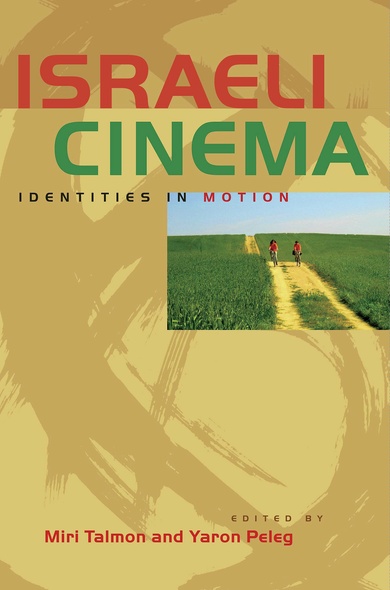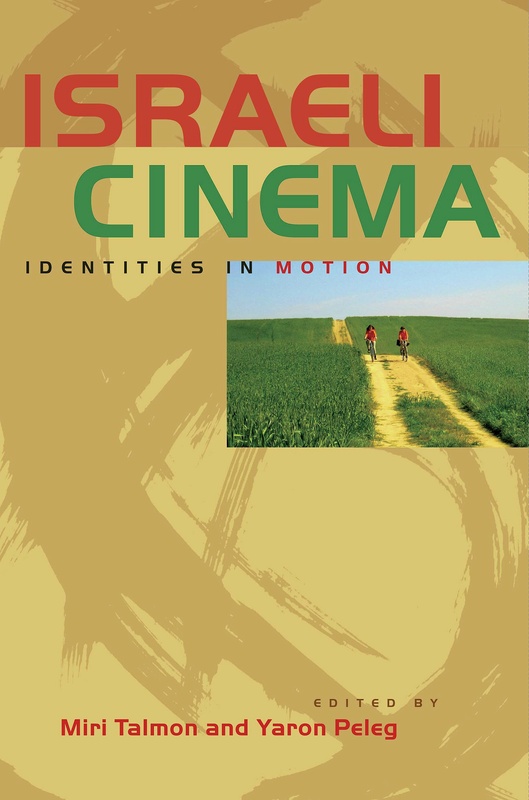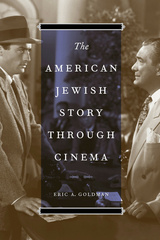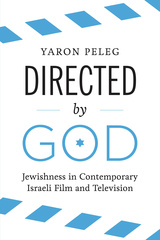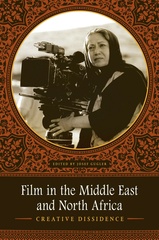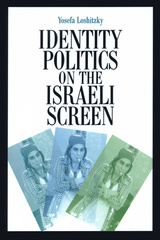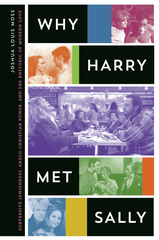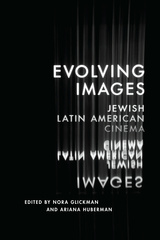With top billing at many film forums around the world, as well as a string of prestigious prizes, including consecutive nominations for the Best Foreign Film Oscar, Israeli films have become one of the most visible and promising cinemas in the first decade of the twenty-first century, an intriguing and vibrant site for the representation of Israeli realities. Yet two decades have passed since the last wide-ranging scholarly overview of Israeli cinema, creating a need for a new, state-of-the-art analysis of this exciting cinematic oeuvre.
The first anthology of its kind in English, Israeli Cinema: Identities in Motion presents a collection of specially commissioned articles in which leading Israeli film scholars examine Israeli cinema as a prism that refracts collective Israeli identities through the medium and art of motion pictures. The contributors address several broad themes: the nation imagined on film; war, conflict, and trauma; gender, sexuality, and ethnicity; religion and Judaism; discourses of place in the age of globalism; filming the Palestinian Other; and new cinematic discourses. The authors' illuminating readings of Israeli films reveal that Israeli cinema offers rare visual and narrative insights into the complex national, social, and multicultural Israeli universe, transcending the partial and superficial images of this culture in world media.
Miri Talmon is a scholar of Israeli cinema and culture who specializes in popular and folk Israeli culture. She has taught at the Open University of Israel, the Hebrew University of Jerusalem, Tel Aviv University, and Haifa University, as well as Wesleyan University and the University of Wisconsin-Madison. She is the author of Israeli Graffiti: Nostalgia, Groups, and Collective Identity in Israeli Cinema (Hebrew title Blues La-Tzabar Ha-Avood).
A native of Israel, Yaron Peleg is Associate Professor of Hebrew and Director of the Hebrew Program at George Washington University. He is also the author of Israeli Culture between the Two Intifadas: A Brief Romance, Derech Gever, and Orientalism and the Hebrew Imagination.
- Introduction
- Part One. The Nation Imagined on Film
- 1. Filming the Homeland: Cinema in Eretz Israel and the Zionist Movement, 1917–1939 (Ariel L. Feldestein)
- 2. Helmar Lerski in Israel (Jan-Christopher Horak)
- 3. Ecce Homo: The Transfiguration of Israeli Manhood in Israeli Films (Yaron Peleg)
- Part Two. War and Its Aftermath
- 4. From Hill to Hill: A Brief History of the Representation of War in Israeli Cinema (Uri S. Cohen)
- 5. From Hero to Victim: The Changing Image of the Soldier on the Israeli Screen (Eran Kaplan)
- 6. The Lady and the Death Mask (Judd Ne’eman)
- 7. Coping with the Legacy of Death: The War Widow in Israeli Films (Yael Zerubavel)
- 8. The Privatization of War Memory in Recent Israeli Cinema (Yael Munk)
- Part Three. An Ethno-Cultural Kaleidoscope
- 9. Disjointed Narratives in Contemporary Israeli Films (Nitzan Ben Shaul)
- 10. Trajectories of Mizrahi Cinema (Yaron Shemer)
- 11. Immigrant Cinema: Russian Israelis on Screens and behind the Cameras (Olga Gershenson)
- Part Four. Holocaust and Trauma
- 12. The Holocaust in Israeli Cinema as a Conflict between Survival and Morality (Ilan Avisar)
- 13. Near and Far: The Representation of Holocaust Survivors in Israeli Feature Films, 1945–2010 (Liat Steir-Livny)
- 14. Homonational Desires: Masculinity and Sexuality in the Cinema of Eytan Fox (Raz Yosef)
- Part Five. Jewish Orthodoxy Revisited
- 15. Negotiating Judaism in Contemporary Israeli Cinema: The Spiritual Style of My Father, My Lord (Dan Chyutin)
- 16. Seeking the Local, Engaging the Global: Women and Religious Oppression in a Minor Film (Nava Dushi)
- 17. Beaufort and My Father, My Lord: Traces of the Binding Myth and the Mother’s Voice (Anat Zanger)
- Part Six. Filming the Palestinian Other
- 18. The Foreigner Within and the Question of Identity in Fictitious Marriage and Streets of Yesterday (Sandra Meiri)
- 19. A Rave against the Occupation?: Speaking for the Self and Excluding the Other in Contemporary Israeli Political Cinema (Dorit Naaman)
- 20. Borders in Motion: The Evolution of the Portrayal of the Israeli-Palestinian Conflict in Contemporary Israeli Cinema (Yael Ben-Zvi-Morad)
- 21. Smashing Up the Face of History: Trauma and Subversion in Kedma and Atash (Nurith Gertz and Gal Hermoni)
- Part Seven. New Cinematic Discourses
- 22. Discursive Identities in the (R)evolution of the New Israeli Queer Cinema (Gilad Padva)
- 23. Kibbutz Films in Transition: From Morality to Ethics (Eldad Kedem)
- 24. The End of a World, the Beginning of a New World: The New Discourse of Authenticity and New Versions of Collective Memory in Israeli Cinema (Miri Talmon)
- List of Contributors
- Index

